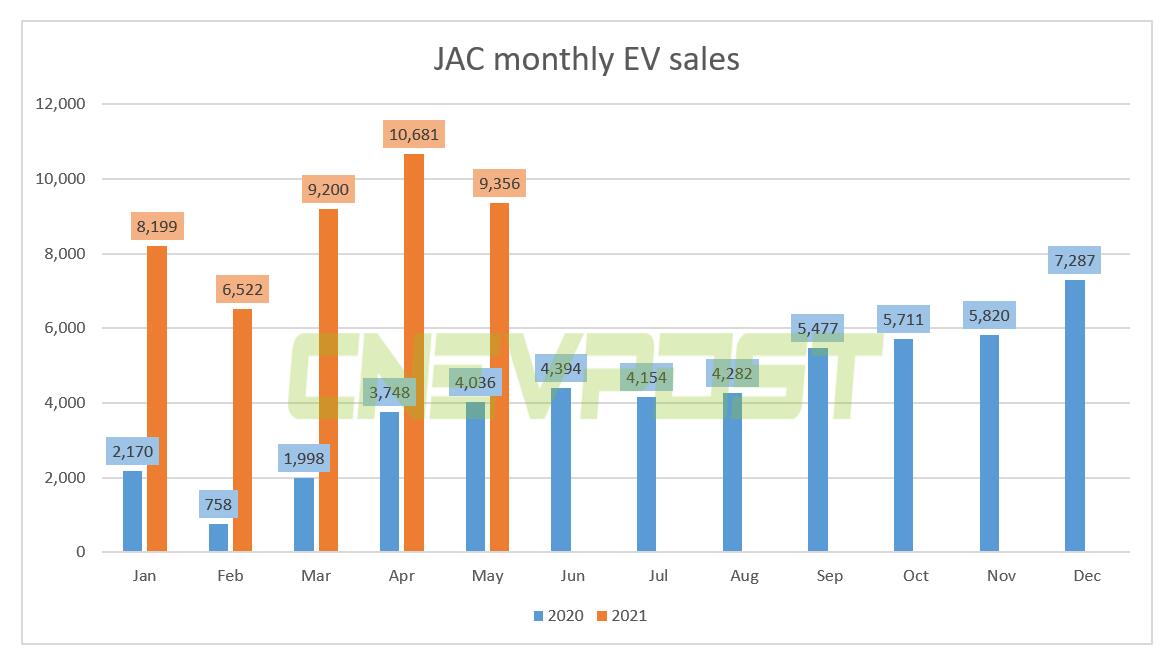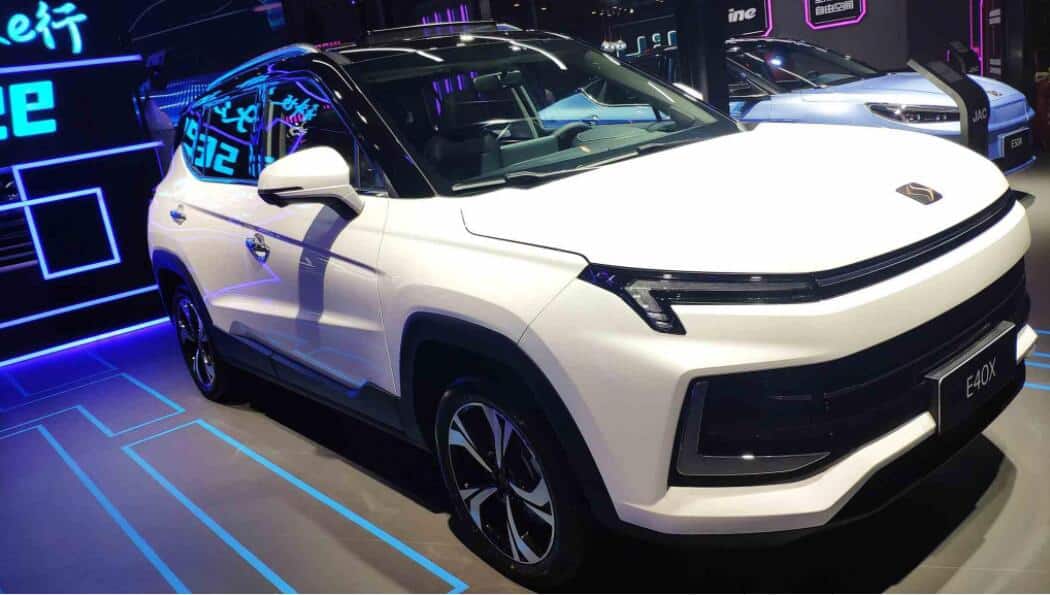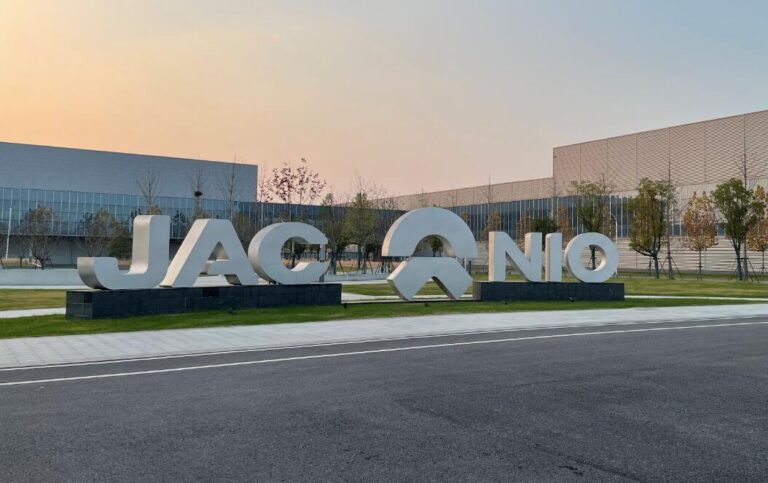Jianghuai Automobile Group Co (JAC), Nio's auto manufacturing partner, sold 9,113 all-electric passenger cars in May, up 131.81 percent year-on-year but down 12.41 percent from April, data released by the company showed Monday.

In May, JAC sold 44,391 units of all cars, up 6 percent from a year earlier.
Its cumulative sales from January to May were 243,875 units, up 45.19 percent from the same period last year.
JAC's pure electric passenger car sales from January to May were 43,958 units, up 245.85 percent year-on-year.
Unlike Nio's high-end positioning, JAC's models are positioned at the entry level with lower prices. Its significant growth in May sales is attributed to the recent launch of new vehicles.
Its next-generation smart pure electric SUV SOL E40X was officially launched on May 16, with an official guide price of RMB 130,000-155,900 ($ 20338-24390) after subsidies.
By comparison, as of the end of April, Nio has delivered 102,803 vehicles over the past nearly three years at an average selling price of RMB 434,700 ($68,270), William Li, Nio's founder, chairman and CEO, said late last month.
The average price is higher than BMW’s and Audi's and over RMB 100,000 more expensive than Tesla's average price in China, proving that Nio has initially established a premium brand, Li said.
Battery swap support is one of the best features of Nio models, and JAC recently launched two battery swap-enabled variants based on the iEVA50 model.
They are aimed at the cab market and are priced at RMB 129,800 ($20,348) and RMB 133,800 respectively.
Both variants are identical in appearance to the current model, with the biggest change being the support for battery swaps that can be completed in less than 3 minutes.

